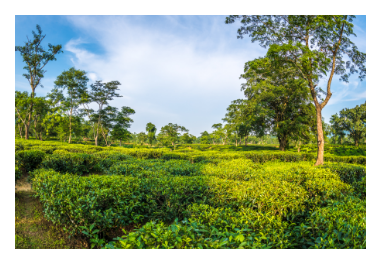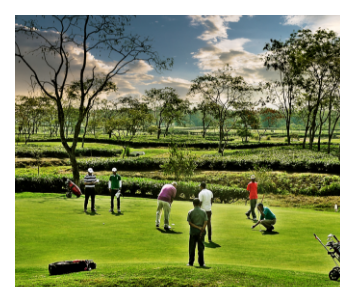

Assam has a rich history of tea and golf. Tea was introduced to Assam by Robert Bruce in 1823 though the Singpho tribe had been growing and consuming it for centuries as a herbal restorative. Assam has the world’s largest concentration of tea plantations and employs 17% of the State’s workforce with more than 800 major and 60,000 small estates spread across 300,000 hectares. Assam tea accounts for 55% of India’s total tea production and 80% of the country’s export.
India became the first country outside Great Britain to have a golf course in 1829. The country offers many world class golf courses but Assam’s ‘tea-tees’ or golf courses in tea estates are in a class of their own. The popularity of golf can be traced back to British colonialism when they introduced this sport as a leisure activity. Today there are some 20 tea-tees, natural and almost all with nine holes. In the present day, they are helping the estates in marketing them as exotic holiday destinations where tee-putt is as exhilarating as the teapot.
A stay in the tea garden provides the perfect opportunity to experience Assam’s tea culture and enjoy its rich history. Driving through country estates and watching the sprawling emerald green tea estates is an unforgettable experience. These tea estates have world class bungalows most of them have golf courses attached to it.
Some of these estates feature airstrips for visitors to come and depart in chartered aircraft, in addition to traditional clubhouses for post-golf gatherings. The 18-hole Digboi Golf Course that Digboi Refinery lords over in eastern Assam’s Digboi town until the Kaziranga Golf resort came up in middle of a tea estate in Jorhat. This resort is one of its kind with challenging 18-hole, par-71 golf course.


